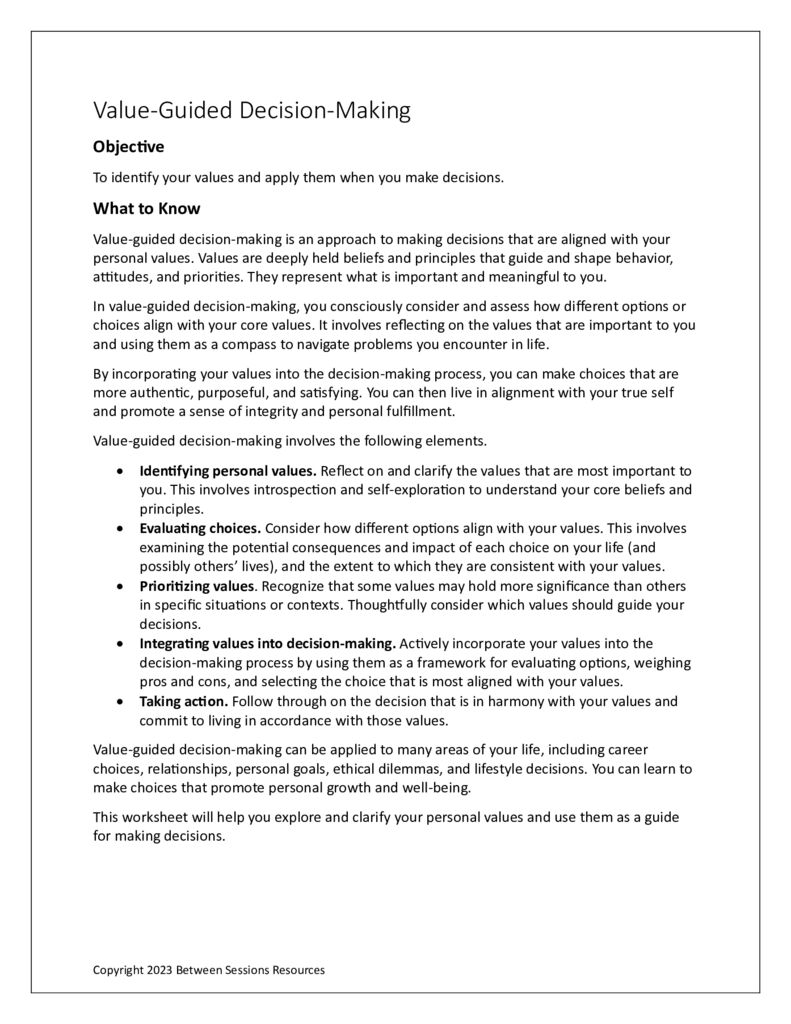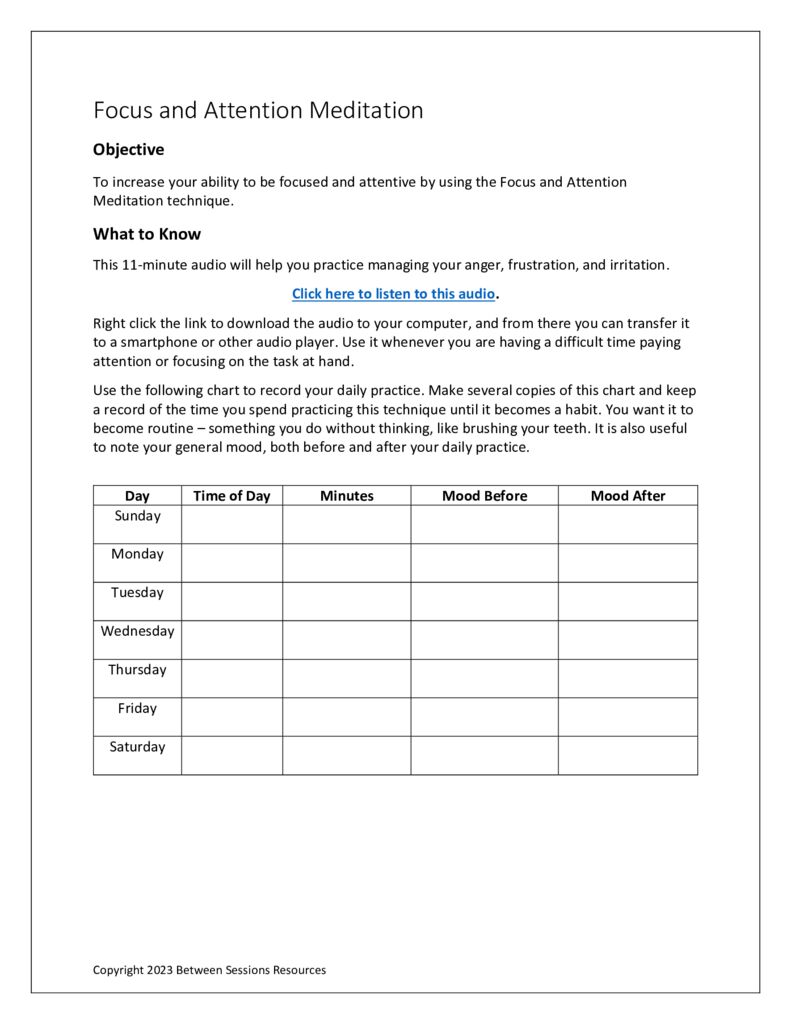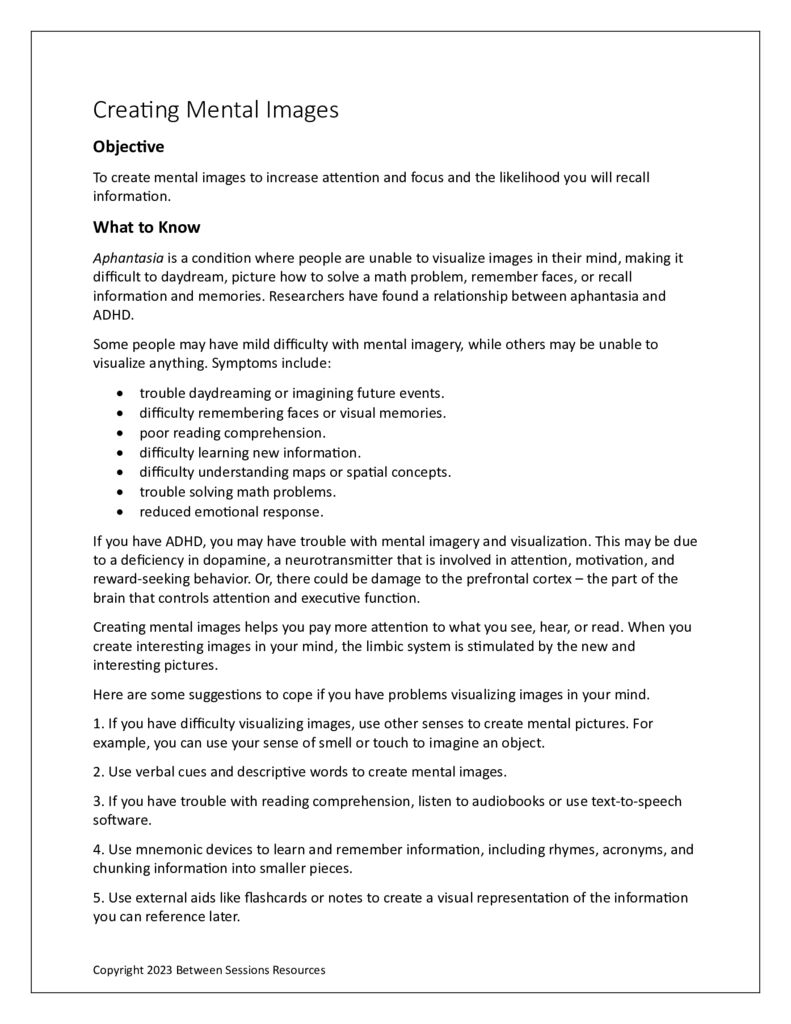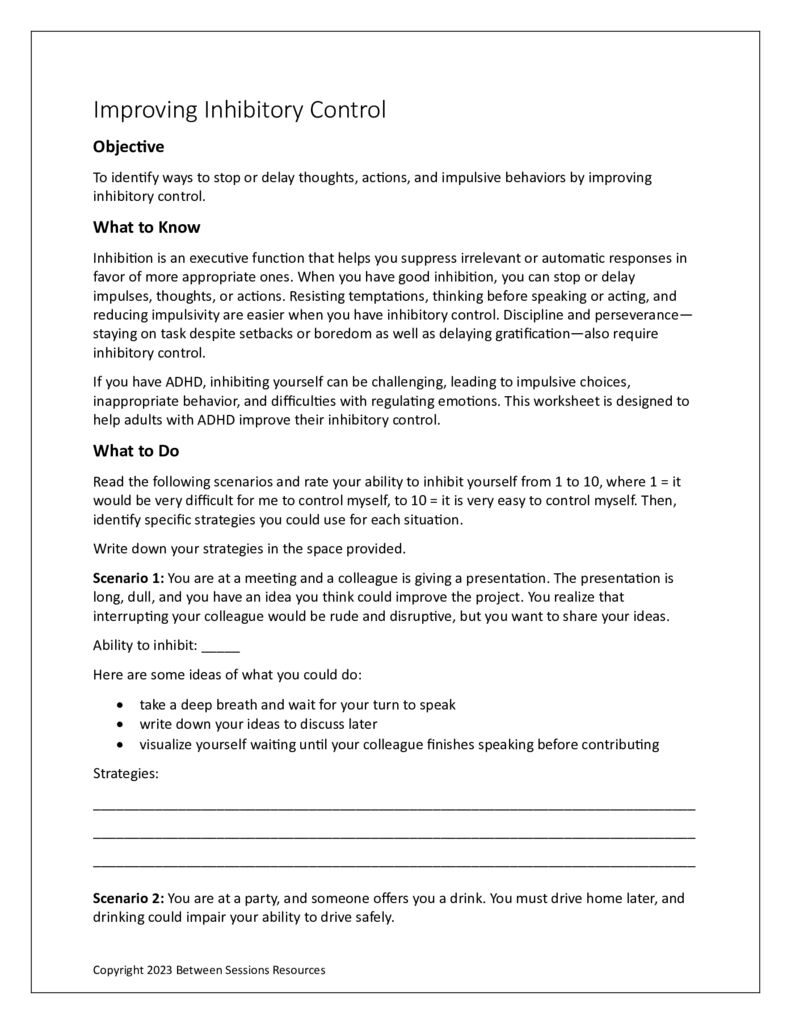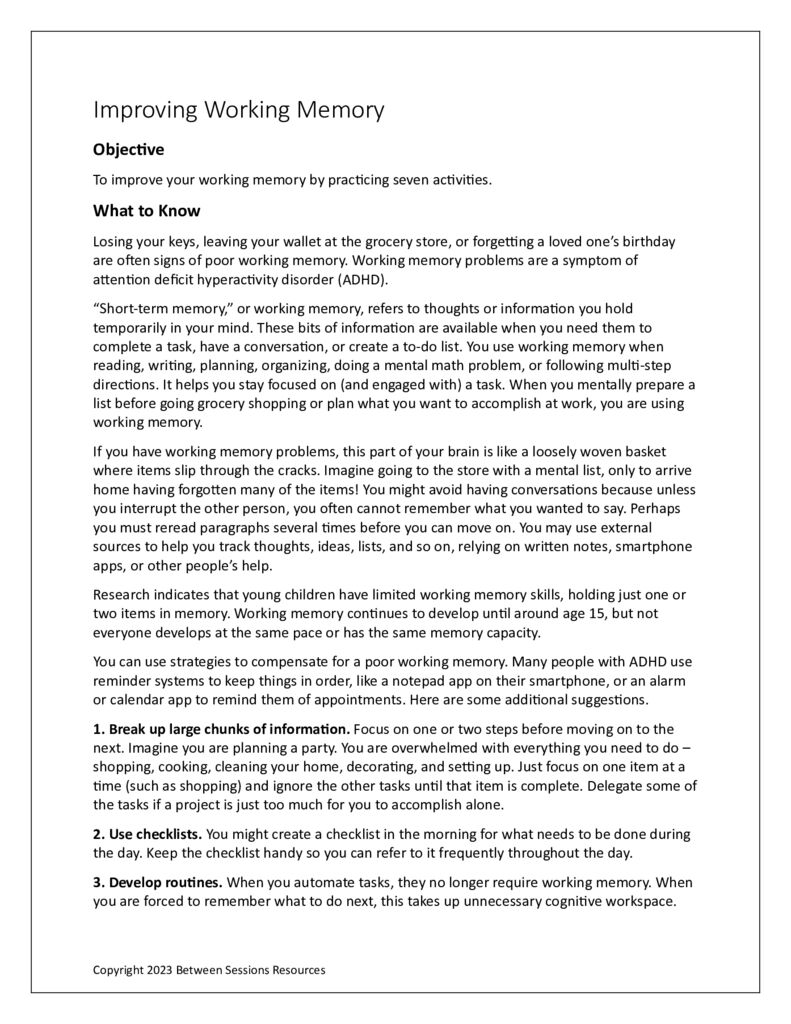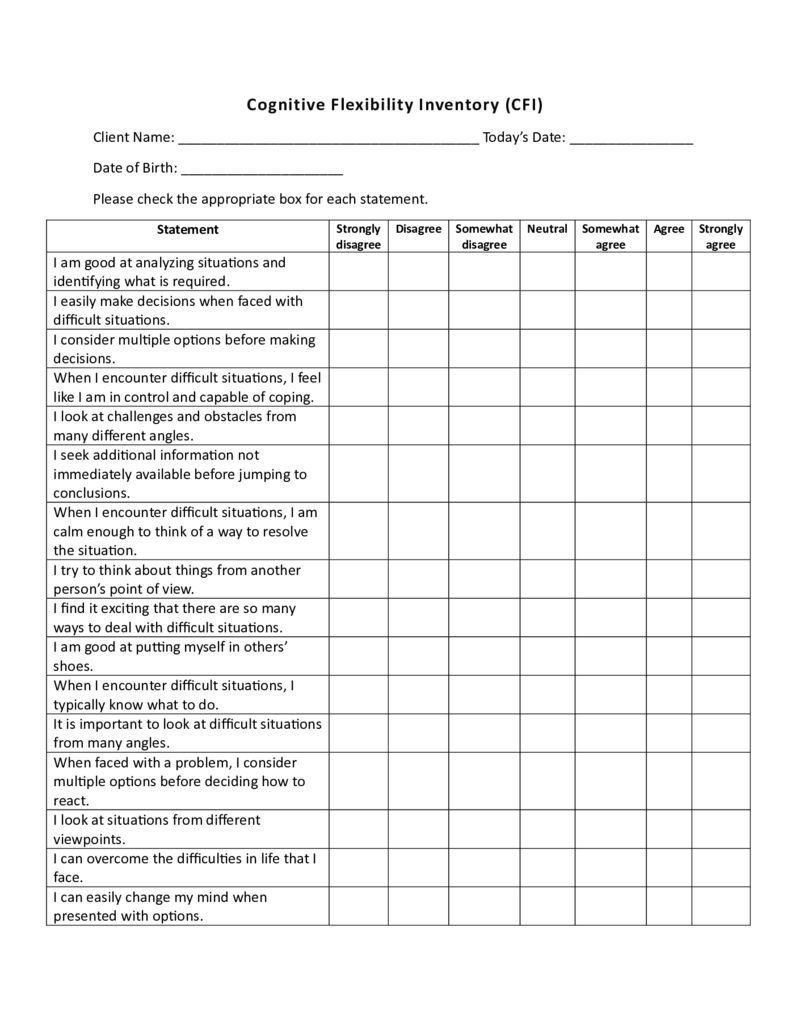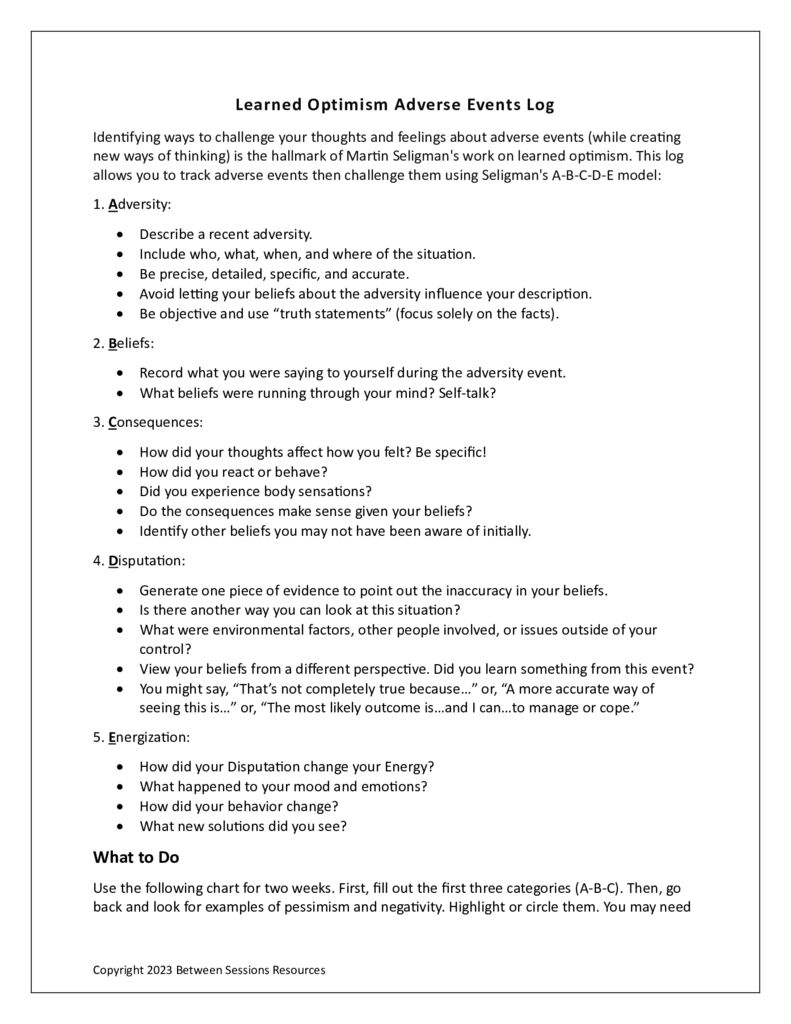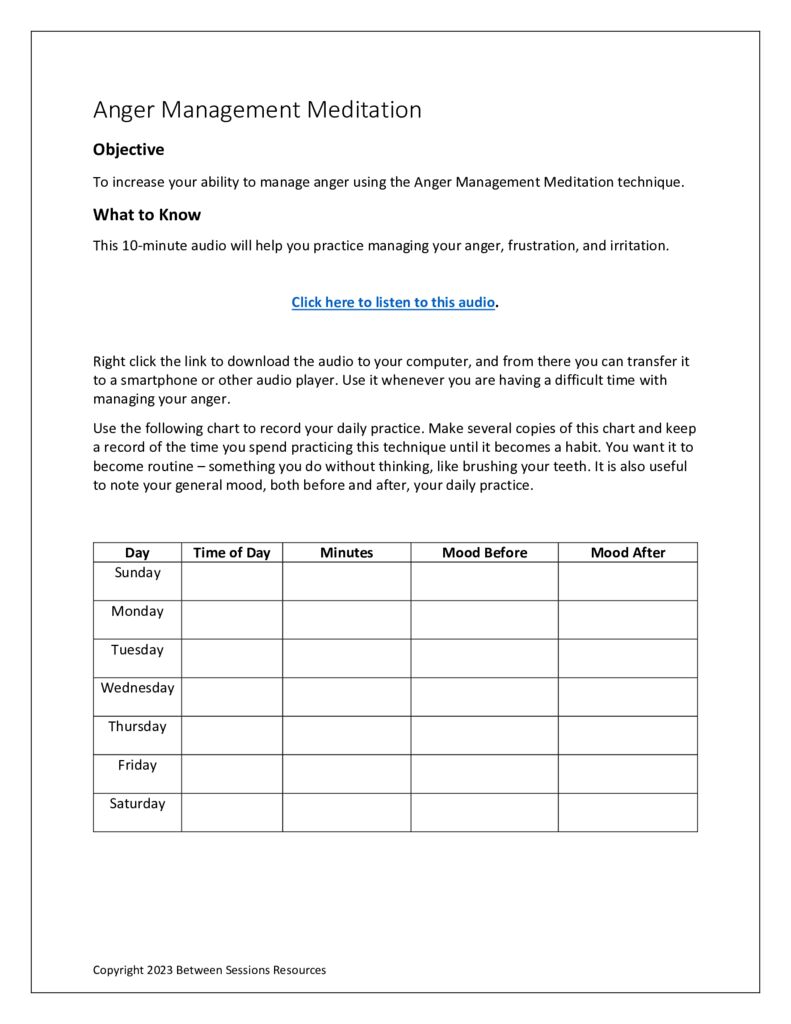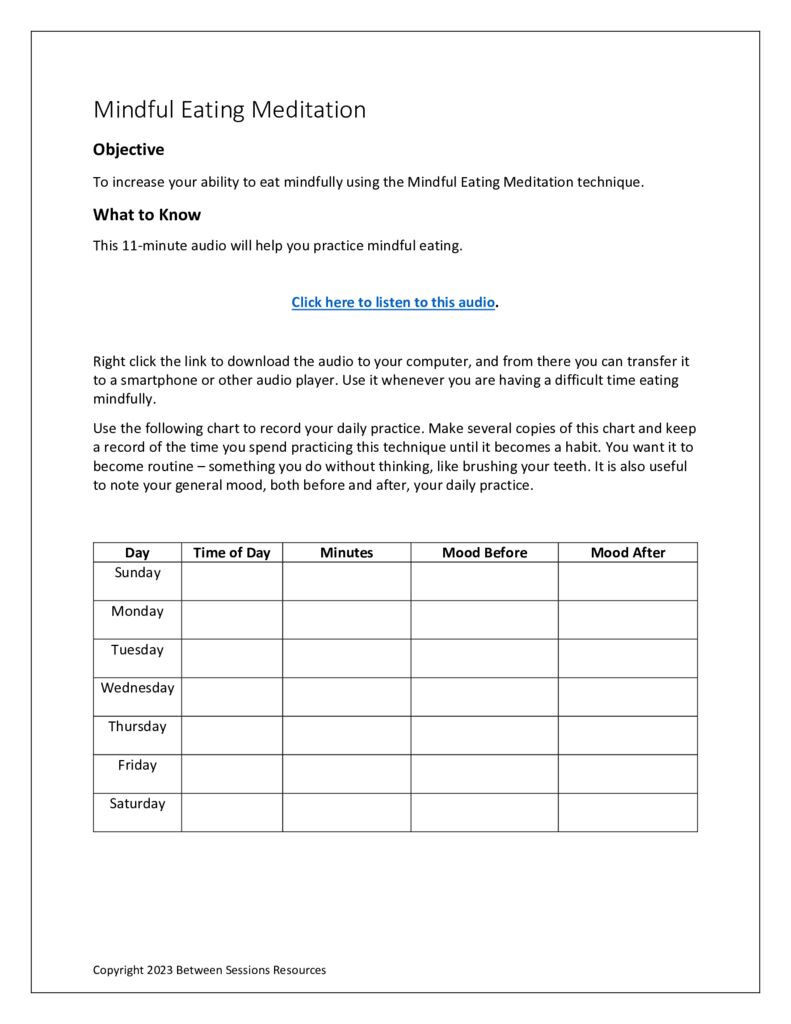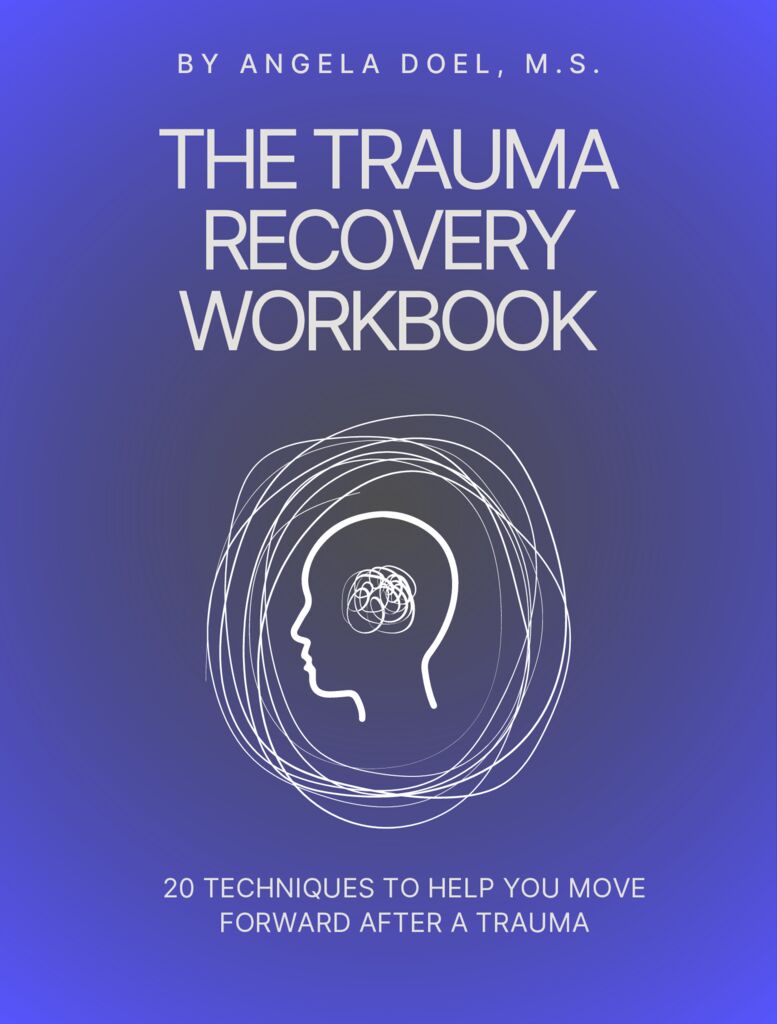Studies tell us that when professionals prescribe therapeutic homework, clients report significantly better outcomes. Our worksheets are derived from evidence-based therapies, and they are designed by experienced professionals. Use the navigation links on the left of this page to view tools in a specific category. Or use the search box at the top of this page to find the exact tool you are looking for.
To modify the tools, click the ‘Send to Client’ button by each tool to open the Psychology Forms Filler. You can then edit the tool as you see fit and either print it out or send it to a client to be filled out online. Click here for a tutorial on using the Psychology Forms Filler.
If you can’t find what you are looking for on this site, please let us know by
clicking here and our team of writers, graphic artists, and therapists will custom-design it for you.
Value-guided decision-making can be applied to many areas of your clients’ lives, including career choices, relationships, personal goals, ethical dilemmas, and lifestyle decisions. This worksheet can help them identify their values and apply them when they make decisions. (0523, decision-making, values, problem-solving)
This 11-minute meditation is designed to help people learn to focus even when distracted by upsetting thoughts and emotions. The worksheet includes a transcript of the audio for clients to highlight important points to remember and a chart to record when the meditation was used and how it affected the person’s mood. (0523, ADHD, executive functioning, focus, attention)
Some people may have mild difficulty with mental imagery, while others may be unable to visualize anything. Aphantasia is a condition where people are unable to visualize images in their minds, making it difficult to daydream, picture how to solve a math problem, remember faces, or recall information and memories. This worksheet can help people learn to use mental imagery to recall information and memories. (0523, ADHD, executive functioning, memory, cognitive style)
This worksheet is designed to help people suppress dysfunctional automatic responses in favor of more appropriate ones. It is designed to help people get control of their impulsivity. The worksheet presents different five scenarios where impulsivity could be a problem and give ideas on how people can gain self-control. It then asks people to write down their own scenarios where impulsivity has been a problem and come up with new behavioral strategies. (0523, ADHD, impulse control, self-control)
This worksheet is designed to help people with poor short-term or “working” memory. It suggests 8 strategies to help people improve or compensate for poor working memory. It includes a checklist for people to identify if they have short-term memory problems and a chart to help them keep track of which strategies are most helpful. (0523, cognitive therapy, eldercare)
The Cognitive Flexibility Inventory (CFI) is a self-report measure to monitor how often individuals engage in cognitive behavioral thought-challenging interventions. Cognitive flexibility enables people to think adaptively when encountering stressful life events, and it is a core skill that helps them avoid becoming stuck in maladaptive thinking patterns. (0423, assessment, cognitive flexibility, executive functioning)
This worksheet teaches the A.D.V.E.R.S.E. model developed by Martin Seligman to teach clients a realistic and optimistic style of thinking. The acronym stands for adversity, beliefs, consequence, disputation, and energization. The worksheet includes a chart for people to use for a two-week period to help change negative and pessimistic thoughts into realistic/optimistic thoughts. (0523, depression, learned optimism)
This 10-minute audio is designed to help people learn self-calming skills and let go of their anger. The worksheet includes a chart for people to keep track of their meditation sessions and a transcript of the audio. (0523, anger management, anger control, emotional regulation)
This 11-minute audio teaches people the concept of mindful eating. It includes a chart to keep track of when the audio is used and the person’s mood before and after listening. It also includes a transcript of the audio if people prefer to read to themselves or notate important things to remember. (0423, eating disorders, mindfulness, ACT, DBT)
This workbook is designed to help people learn new ways to recover from trauma. It includes worksheets on understanding how trauma affects the body, talking about the trauma, understanding boundaries, developing learned optimism, and much more. (0423, trauma, PTSD)

